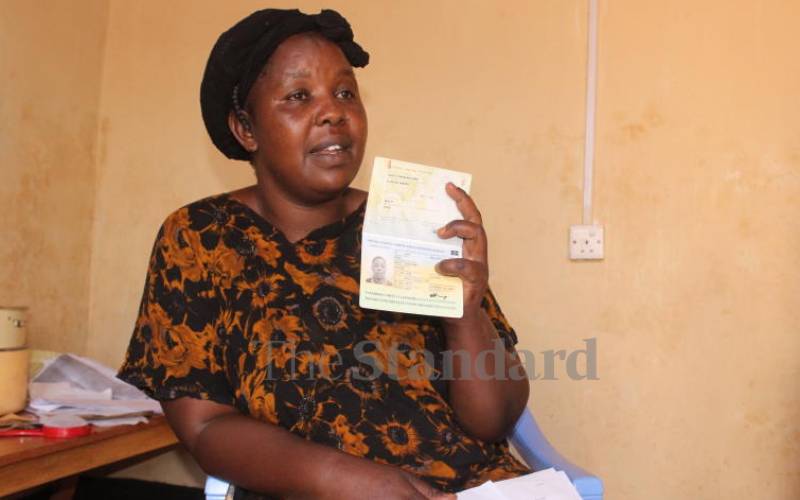×
The Standard e-Paper
Smart Minds Choose Us

Mercy Chepkemei speaks at her rented house in Kuinet centre, Moiben, Uasin Gishu County. March 16, 2022. [Christopher Kipsang, Standard]
Off a dusty road in Kuinet, Uasin Gishu County, sits a rental house where a visibly distressed Ms Mercy Chepkemei has called home for the past two months.